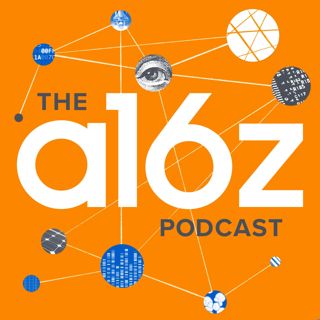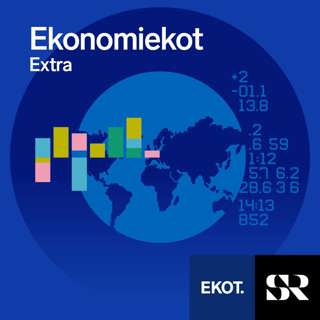
a16z Podcast: I Reject the Term Viral Video
YouTube star Casey Neistat rejects the term “viral video,” which is strange because he’s had more than his share of internet monsters. To say I want to make a viral movie, is like a musician saying I want to make a hit song -- it’s just not a good place to start, Neistat says, paraphrasing a point made on Twitter. So how does Neistat start? How does he both attract an audience of millions, and keep them coming back on a daily basis? Neistat is joined on this segment of the pod by Bailey Richardson, one of the early team members at Instagram. With the tools of production available to everyone, how do you create something that people will stop and pay attention to? Neistat does it by ripping up the snowy streets of New York on a snowboard towed behind a jeep, but what about the rest of us?
11 Mars 201630min

a16z Podcast: Data Network Effects
If network effects are one of the most important concepts for software-based businesses, then that may be especially true of data network effects -- a network effect that results from data. Particularly given the prevalence of machine learning and deep learning in startups today. But simply having a huge corpus of data does not a network effect make! So how can startups ensure they don't get a lot of data exhaust but get insight out of and add value to that data and the network? How can they make sure that the (arguably inevitable) data aspect of their business isn't just a sideshow or accident? How should founders strike the balance between not overbuilding/ building a data team vs. having enough data for those data scientists to work with in the first place? And finally, what are the ethical considerations of all this? The a16z general partners most focused on bio and fintech -- Vijay Pande and Alex Rampell -- join this episode of the a16z Podcast to share their observations and advice on all things data network effects.
8 Mars 201631min

a16z Podcast: Disruption in Business... and Life
It's not incompetence, but competence, that causes companies to be disrupted. That applies to big companies and small, as well as people too. Or so argue Clayton Christensen and Marc Andreessen in this podcast, based on a conversation at Startup Grind (moderated by Derek Anderson) between the a16z co-founder and Harvard Business School professor Christensen -- aka the "father of disruption theory" (also known to his wife as "the Jewish mother of business"). This podcast shares everything from their views on managing innovation in companies like Apple, Google, and Twitter (including how to apply the jobs-to-be-done framework there); what the abundance of capital means for innovation; and how to truly measure success and strike work-life balance.
2 Mars 201633min

a16z Podcast: Mobile Falls Hard for Virtual Reality
The mobile world has fallen hard for VR, says Benedict Evans. But will virtual reality mean real profit for hardware makers? Evans offers his observations on VR and more gleaned from the largest gathering of the mobile industry, Mobile World Congress. The value in mobile keeps shifting, Evans says, from hardware to software, and the platforms on which that software runs. But the players and the business models are far from set when practically anyone can get into handset business. The forces shaping the future of mobile -- from VR to Algerian handset makers just crushing it -- on this segment of the podcast.
2 Mars 201624min

a16z Podcast: Mapping the Future of Virtual Reality
Virtual reality is coming fast, and everyone seems to assume that it will be gamers who get to have all the fun first. But there are other applications for VR that could also bring it into the mainstream. “It could very well be business users,” says 16z’s Chris Dixon. “It’s anything where you would want time travel or teleportation.” Dixon is joined on this segment of the podcast by Saku Panditharatne and Kyle Russell, both on the firm’s deal team, to offer their perspective on how virtual reality is likely to enter all of our lives. This year promises to be the moment when more than a very small number of people will get their first taste of VR. What that looks and feels like, and what that shared experience sets in motion on this segment of the a16z podcast. Chris Dixon starts the conversation. The views expressed here are those of the individual AH Capital Management, L.L.C. (“a16z”) personnel quoted and are not the views of a16z or its affiliates. Certain information contained in here has been obtained from third-party sources, including from portfolio companies of funds managed by a16z. While taken from sources believed to be reliable, a16z has not independently verified such information and makes no representations about the enduring accuracy of the information or its appropriateness for a given situation. This content is provided for informational purposes only, and should not be relied upon as legal, business, investment, or tax advice. You should consult your own advisers as to those matters. References to any securities or digital assets are for illustrative purposes only, and do not constitute an investment recommendation or offer to provide investment advisory services. Furthermore, this content is not directed at nor intended for use by any investors or prospective investors, and may not under any circumstances be relied upon when making a decision to invest in any fund managed by a16z. (An offering to invest in an a16z fund will be made only by the private placement memorandum, subscription agreement, and other relevant documentation of any such fund and should be read in their entirety.) Any investments or portfolio companies mentioned, referred to, or described are not representative of all investments in vehicles managed by a16z, and there can be no assurance that the investments will be profitable or that other investments made in the future will have similar characteristics or results. A list of investments made by funds managed by Andreessen Horowitz (excluding investments and certain publicly traded cryptocurrencies/ digital assets for which the issuer has not provided permission for a16z to disclose publicly) is available at https://a16z.com/investments/. Charts and graphs provided within are for informational purposes solely and should not be relied upon when making any investment decision. Past performance is not indicative of future results. The content speaks only as of the date indicated. Any projections, estimates, forecasts, targets, prospects, and/or opinions expressed in these materials are subject to change without notice and may differ or be contrary to opinions expressed by others. Please see https://a16z.com/disclosures for additional important information.
26 Feb 201638min

a16z Podcast: Infrastructure... Is Everything
Infrastructure. It powers everything from cities to computing, yet is sometimes considered "boring" because it is so invisible to so many of us. But as software continues to eat the world, infrastructure has come to the forefront. And some of the most exciting technology innovations are now happening at the infrastructure level: It's changing everything, observes a16z's newest general partner Martin Casado -- from how new tech is created to how new tech is sold. Casado -- one of the pioneers of "software-defined networking" -- joins this episode of the a16z Podcast with Sonal Chokshi and Michael Copeland to share his journey from Lawrence Livermore National Laboratory to Stanford to Nicira Networks to VMware to a16z. He also discusses the tradeoffs in theoretical v. applied computer "science", including lessons learned as a PhD and technologist who then had to run a startup through hard times. Finally, Casado shares what he thinks are the key vectors and trends in networking, what's coming next, how the "as-a-service"(ification) of infrastructure is creating entirely new patterns of buying tech, and how selling to developers is so different (hint: open source is a lot more important than you might think!).
24 Feb 201637min

a16z Podcast: Open vs. Closed, Alpha Cities, and the Industries of the Future
The principal political binary of the past century was the political 'left versus right'. But in the 21st century the binary has shifted -- the battleground now is 'open versus closed'. Those states and societies that embrace economic, political, and cultural openness will have a better shot at competing in the software and technology-driven future, argues Alec Ross, author of the new book The Industries of the Future. Ross, who worked on the first Obama presidential campaign and was the advisor on innovation to Hillary Clinton when she was Secretary of State, joins the a16z Podcast to discuss his views on the industries (and cities) of the future, how they are playing out across a 196-country chessboard, and what we all can do to prepare ourselves and our children for what is to come.
19 Feb 201632min

a16z Podcast: 'In the Eye of a Tornado' -- Views on Innovation from China
No matter how one views Xiaomi -- and there are many ways to view it, for better or worse -- one thing is clear: It, and other such companies (like WeChat and Alibaba), indicate a broader trend around innovation coming from China. Companies and countries that were once positioned as copycats or followers are becoming leaders, and in unexpected, non-obvious ways. For example, through scale, distribution, logistics, infrastructure, O2O, a different kind of ecommerce, mobile marketing, even design... But of a very different kind than iconic examples like, say, SpaceX. Or Apple, which arguably could damage the U.S. if single-mindedly regarded as "our official most innovative company". Or so argue the guests on this podcast, which include a16z partner Connie Chan and author/long-time observer of internet and social media culture Clay Shirky, who is currently based at NYU Shanghai, wrote the popular book Here Comes Everybody, and most recently authored Little Rice on "smartphones, Xiaomi, and the Chinese Dream".
18 Feb 201631min






















